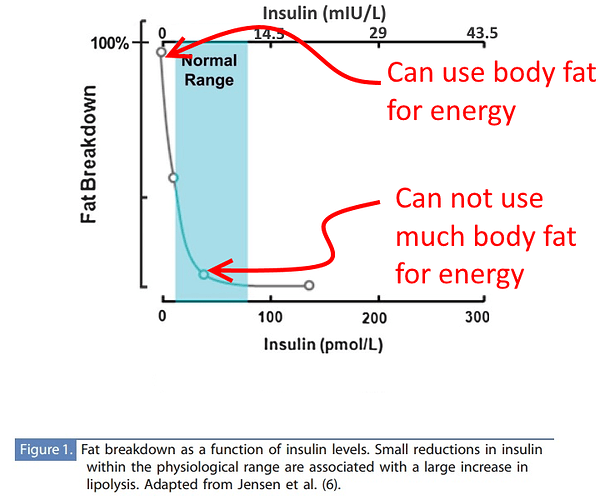I think it’s a common human conceit. to identify what you think worked for you, then assume it should work that way for everyone else … and if it doesn’t then they aren’t trying as hard as you.
It’s what Carl and I do tho to be honest … we tell you what worked for us, and what science can describe the mechanism. But we do try to understand why we are all different one from another and what scientific explanations could describe that.
Mark Sisson is likely incorrect that all humans respond to caloric deficit by maintaining metabolic rate and reducing energy storage. If they have low fasted insulin then that would make sense as what is propping up storage is a net energy surplus. If however they have high fasted insulin then the opposite happens, their high insulin causes adipose tissue to hold onto energy and their metabolism goes looking for other budgetary cuts to make.
Kevin Halls followup of the biggest loser competition showed this. They got insulin resistant overweight people burning 2500 kCal/day and imposed a caloric restriction upon them and they lost weight and their metabolic rate dropped to 2000 kCal/day. 6 years later they put all the weight back on and now they were MORE insultin resistant and had less lean mass than at the beginning of the competition and now their metabolic rate had dropped further to 1900 kCal/day … yet they were still eating a high protein diet and exercising as hard as they had at the end of the competition.
Their metabolic rate dropped and they started using protein for energy because their high insulin fought energy use from storage.
I suspect that Mark has a book to sell about his new invention called the Ketogenic zone where you can eat 40-110g of carbs regularly and be making ketones the next day after a quick workout. I also suspect it will work for about 15% of people.

